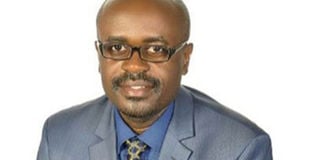Textbook democracy should not be the rank priority for Africa

Raymond Mugisha
What you need to know:
- Raymond Mugisha says Africa has simply staked too much on the dream of perfecting democracies in it's countries.
On May 25th 1963, The Organization of African Unity (OAU) was established. Around that time, many African countries were getting independent from colonial control.
The organization’s charter, a concise document, envisaged and spelt the intentions of our forefathers towards aspirations of common good and the dangers against which African states had stepped out into the self-governance.
A lot of what the organization set out to protect us from has since caught up with us. For example, African heads of state at the time were intentional about their responsibility to harness the natural and human resources of our continent for the total advancement of our peoples in all spheres of human endeavour.
They were inspired by a common determination to promote understanding among our peoples and cooperation among our states in response to the aspirations of brother-hood and solidarity, in a larger unity transcending ethnic and national differences.
They were desirous that all African States should unite so that the welfare and wellbeing of their peoples can be assured. They committed to the determination to safeguard and consolidate the hard-won independence as well as the sovereignty and territorial integrity of our states, and to fight against neo-colonialism in all its forms.
They similarly formed a front with an objective of eradicating all forms of colonialism from Africa. These revolutionary intentions, and others, were spelt out in the opening pages of the OAU charter. We have, so far, registered many shortfalls in regards to what they had planned for the continent.
Formalizing the above intentions in 1963 was not without basis. A few African states had already tasted uncertainties due to external influence and the internal challenges that were unavoidable in such young nations.
It was not going to be easy for Africa’s founding fathers to run perfect governance systems that had to grapple with budgetary challenges, evolving human resource needs and other trials as well as opportunistic players that were accustomed to flourishing in an environment where natives were finally free to take charge of their young nations.
Even as the OAU was being formed, Ghana’s Kwame Nkrumah had already survived assassination attempts. Patrice Lumumba had not been that lucky and had been murdered two years prior. Nkrumah was later to be overthrown in a coup in 1965. Nigeria’s Tafawa Balewa was assassinated in 1966, and overall about 20 coups were executed successfully within African states in the 1960s alone.
The trend continued well into the 1970s, and lives were lost in thousands. In many instances, foreign interference was cited in these coups and there was one regular factor underlying their orchestration – the commoditization of democracy, in some instances being sold to Africa by foreign forces and promised to the masses by upcoming leaders.
It is noteworthy, that the objectives of the OAU spelt out in 1963 were in themselves enough to consist a stable and prosperous Africa. The text of the OAU charter did not dwell on the word democracy, although the spirit of the document actually transcended common democratic practices.
There was thus no need to import democracy prescriptions from abroad to realise our aspirations, but we did import them and instead failed to safeguard the content and spirit of our foundational covenant as Africans.
We did not prioritise a united Africa as we should have but rather took the option of pursuing perfecting of democracy procedures in individual African states, to a large extent shifting the focus of many African statesmen and political leaders from a continental agenda to their separate countries.
It is unimaginable how much political resources that should have pushed a more lucrative continental dream, have since been underutilized in the politics of our different countries. In the meantime, we remain at the bottom of the global profile in all aspects of material wellbeing.
To date, the commodity of textbook democracy is still on sale and has a way to go to become domestic to Africa. It is still being paid for with lives, recurrent civil strife and economic destruction.
We fail and keep trying, riding on hope, without any real plans of considering if we could modify the commodity called democracy to suit our cultural and economic uniqueness.
We take it that achieving perfect democracy in our separate countries is a precondition for economic prosperity, and a necessity for equal trade unity.
Sometimes you get to hear commentators arguing that trade unity, even at regional level, is impossible due to the different stages we are at in implementing democratic procedures.
We have simply staked too much on the dream of perfecting democracies in our countries. After 60 years, we possibly need to refocus our priorities and refine the script to suit our circumstances.
Raymond is a Chartered Risk Analyst and risk management consultant




